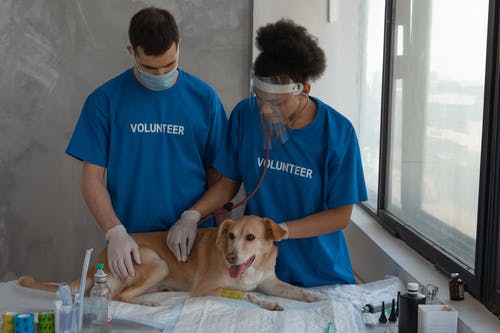No matter what type of operation your pets need, you will be provided extensive instructions on exactly how to look after your pet following surgery by your pet’s vet. Sometimes, there may be specific and necessary instructions for your pet’s surgery that you must adhere to. Nonetheless, complying with a couple of basic standards will help keep your pet protected and comfortable as they recuperate and return to regular life.
The Treatment Your Pets Need After Surgery
Both pets and their owners may experience anxiety as a result of surgery. An initial couple of days and weeks adhering to surgery demands special attention for your pets. These are seven fundamental methods you can do to assist.
1. Keep your pet warm but not overheated.
The anesthetic’s effects will prevent your pet’s temperature level sensors from working correctly for a few days after surgery. If the temperature is extremely warm or chilly, your pet will certainly not be able to inform you, so you will certainly have to help them.
2. Ensure that your pet is constantly on the ground.
Even after the anesthetic has worn away, your pet might still slide and fall off their bed or the stairs for the first couple of days. Because obstacles will be harder to conquer, identifying an easy, comfortable spot to rest near the door where you can leave will undoubtedly be excellent.
3. Keep your pet away from other animals and youngsters.
This is when your ordinarily mild pet might snap or bite at other pets and even children. The pain and complications triggered by anesthetic may make them behave strangely throughout the first several days following surgery. Do not be alarmed if your best friend appears irritable momentarily. Read more about their animal hospital.
4. Take your pets outside.
They will need to urinate much more often due to the IV fluids throughout the operation. If they are not allowed to go outdoors regularly, they might become dizzy and have mishaps at home. There will be a time when a pet sleeps so intensely that they may also pee in their rest, so it is best not to let them lay on anything too unpleasant for them.
5. Give them water.
Your pet will not feel thirsty, but they will need more significant hydration. Pets can pass away if they droop underwater while too tired. You can additionally give your pets a reward, which some might enjoy while others may not like.
6. Take good care of the injuries.
Clean the injury according to your vet’s directions. Vet recommendations could extend from changing plasters or cleaning a drain site two to three times a day to looking at it every few days. Some veterinary internal medicine in Norristown will undoubtedly advise you to wash the injury with salt water or use betadine. Some vets will undoubtedly offer you antibiotic lotions.
7. Allow them to stay dry.
It is better to prevent taking a bath for the first few weeks. Your vet surgeon in Norristown might have more proper guidance. If the temperature is damp, go for a walk, but keep the incision site completely dry. Do not allow them to rest on wet or dirty ground if they lay on their belly. Use cling wrap to cover the injury and bandage if it is raining.








